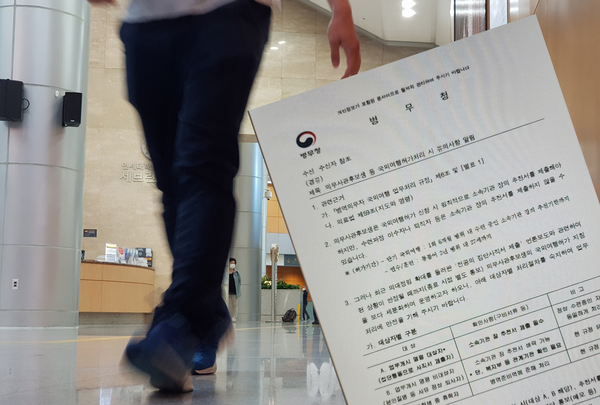The government has moved toward restricting overseas travel for interns and residents who resigned in protest to the increase in medical school enrollment quota, causing controversy.

Under the new measure, doctors who tendered their resignations in a collective action must have a recommendation letter from the head of their institution to leave the country, as trainee doctors do. Those who resigned for personal reasons must have the Ministry of Health and Welfare confirmation to go abroad.
According to the medical community and other sources, the Military Manpower Administration (MMA) recently sent a letter titled “Precautions for processing overseas travel permits for medical cadets” to its regional offices.
According to data obtained by Korea Biomedical Review, MMA will continue to apply the guidelines for overseas travel permits for medical cadets until the situation regarding the mass resignation of doctors is stabilized. The agency said it would notify the end of the guidelines separately.
Accordingly, those who have joined the mass resignation and received an order to resume work must submit a recommendation letter from the head of their institution to travel abroad, which means they will be treated the same as junior doctors working in training hospitals.
Medical residents who quit for personal reasons, including illness, will not be obliged to submit a recommendation letter from the head of the institution. However, the Ministry of Health and Welfare and other government agencies will check whether the resignation is part of the group’s resignation against expanding medical schools. Medical students who took a leave of absence will be treated as military preparatory resources.
MMA instructed its regional offices to withhold permission if a junior doctor applied for an overseas travel permit with a recommendation letter and to notify MMA of the list of such cases. The attached form calls for providing the following information – regional office, name, date of birth, purpose, and duration of the permit, country, and peculiarities, such as reasons.
In general, medical cadets must submit a recommendation letter from the head of their institution to travel abroad according to the “Regulations on Overseas Travel for Military Service Obligated Persons.”
However, the submission of recommendations is omitted for those who have completed the training program, have retired and are waiting for enlistment, or are not assigned to a service institution, such as a training hospital, after becoming a cadet.
The permissible period for short-term overseas travel by trainee doctors is until the recommended deadline by the head of their institution within five months for one travel. If the purpose of travel is training, trainee doctors under 27 can apply for up to two years.
